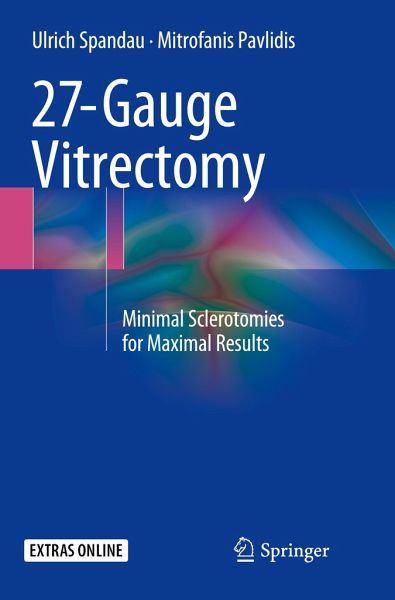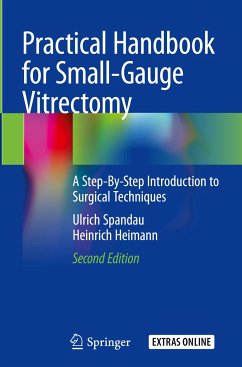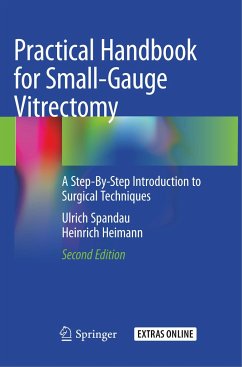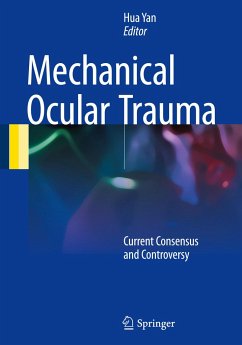
27-Gauge Vitrectomy
Minimal Sclerotomies for Maximal Results
Herausgegeben: Spandau, Ulrich
Versandkostenfrei!
Versandfertig in 6-10 Tagen
98,99 €
inkl. MwSt.
Weitere Ausgaben:

PAYBACK Punkte
49 °P sammeln!
This book provides step-by-step instructions on how to operate with 27G instrumentation in a wide range of surgical indications, including vitreous floaters, macular holes, dropped nucleus, retinal detachment, diabetic retinopathy, submacular hemorrhage, retinopathy of prematurity and much trauma. All surgeries are approached in cookbook fashion, with initial coverage of the "ingredients" (devices and instruments) and then meticulous description of preparation and performance with supporting photographs, drawings and videos. In addition, the differences and benefits in comparison with 23G and ...
This book provides step-by-step instructions on how to operate with 27G instrumentation in a wide range of surgical indications, including vitreous floaters, macular holes, dropped nucleus, retinal detachment, diabetic retinopathy, submacular hemorrhage, retinopathy of prematurity and much trauma. All surgeries are approached in cookbook fashion, with initial coverage of the "ingredients" (devices and instruments) and then meticulous description of preparation and performance with supporting photographs, drawings and videos. In addition, the differences and benefits in comparison with 23G and 25G vitrectomy are highlighted.
Small-gauge vitrectomy has radically changed the ways in which vitrectomy is performed. 27G vitrectomy is the most recent and most exciting development in small-gauge vitrectomy. The healing time is faster but the small diameter prolongs the duration of surgery. This obstacle has been overcome with powerful new vitrectomy machines and revolutionaryvitreous cutters with two cutting blades making 27G vitrectomy as fast as 25G. This new equipment has expanded the indications for 27G surgeries immensely from detachment surgery to retinopathy of prematurity and the advent of new instruments may make 27G the gold standard in the future. This book, written by authors with huge experience in 27G vitrectomy, will enable surgeons to fully exploit its advantages.
Small-gauge vitrectomy has radically changed the ways in which vitrectomy is performed. 27G vitrectomy is the most recent and most exciting development in small-gauge vitrectomy. The healing time is faster but the small diameter prolongs the duration of surgery. This obstacle has been overcome with powerful new vitrectomy machines and revolutionaryvitreous cutters with two cutting blades making 27G vitrectomy as fast as 25G. This new equipment has expanded the indications for 27G surgeries immensely from detachment surgery to retinopathy of prematurity and the advent of new instruments may make 27G the gold standard in the future. This book, written by authors with huge experience in 27G vitrectomy, will enable surgeons to fully exploit its advantages.












